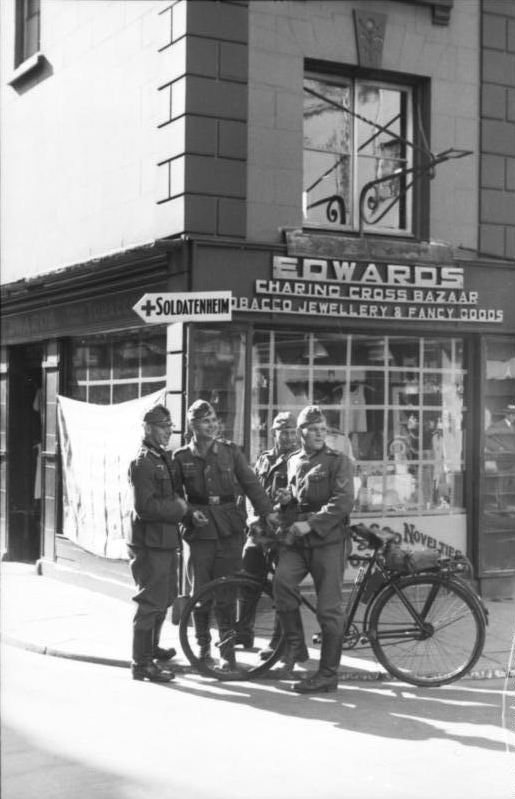The Channel Islands and World War Two
The Channel Islands in World War Two were the only parts of Britain to be occupied by Germans forces.
German forces invaded the Channel Islands on 30 June 1940 after it became clear that the islands were not defended. Fearing an attack, 17,000 people had already evacuated the islands, but there were still 42,000 remaining.
The islands held great strategic value to Hitler, as they held the most fortified parts of the Atlantic Wall. However, the islands were of little strategic importance to Winston Churchill, who responded gave a muted response to the invasion.
The Channel Islands were occupied by the Nazis for five years The Jews who inhabited the islands were most affected by the occupation. Aware of the imminent arrival of the Nazis, the majority of the Jewish population had already escaped to the British mainland. Only a small number of Jews were left behind. As a result, 12 registered on Jersey, and four on Guernsey.A law was passed on 18 October 1940 that required all Jews to register with the civilian authorities. Any person having at least three Jewish grandparents were deemed to be a Jew.

The Nazi authorities confiscated all Jewish businesses on the Channel Islands in May 1941.Three Jewish women were arrested on the Channel Islands and deported to Auschwitz where they were murdered.
The German authorities announced plans to deport all British subjects on the island with permanent residency papers in September 1942. In total, 2,200 people were deported to Germany during the war.
The islanders became increasingly angry with the German occupation as the war went on. The Germans had seized control of the island’s media outlets, so some islanders resisted this by printing illegal news sheets. The most well-known was the Guernsey Underground News Sheet (GUNS).
By March 1943, the German authorities made it illegal to listen to the BBC and confiscated all radios. The islanders tried to make crystal radio sets to get around this, but finding the parts was very difficult.
POWs from the east of Europe had been brought as slave labourers to the Channel Islands to build the Atlantic Wall. Some escaped and were helped by the islanders. Punishment for helping slave labourers was severe.
There are records of one public execution taking place on the Channel Islands during the German occupation. Sixteen Frenchmen had left occupied France in the hope of joining the Free French in Britain and they landed on the Channel Islands under the belief that they were on the Isle of Wight. The Nazis arrested them and their leader, Francois Sourbet, was put on trial and shot by firing squad.
The lives for the islanders were restricted even further in October 1942 following a British commando raid - Operation Bassault. The Germans tightened security on the island after a British attack on the island.
On 8 May 1945 at 10:00 the islanders were informed by the German authorities that the war was over. Churchill made a radio broadcast at 3:00pm during which he announced that:
Hostilities will end officially at one minute after midnight tonight, but in the interests of saving lives the "ceasefire" began yesterday to be sounded all along the front, and our dear Channel Islands are also to be freed today.”
The following morning, 9 May 1945, HMS Bulldog arrived in St Peter Port, Guernsey and the German forces surrendered onboard the vessel. British forces landed in St Peter Port shortly afterwards, welcomed by the happy but malnourished islanders.
See also: Women's Auxiliary Air Force
MLA Citation/Reference
"The Channel Islands and World War Two". HistoryLearning.com. 2026. Web.
